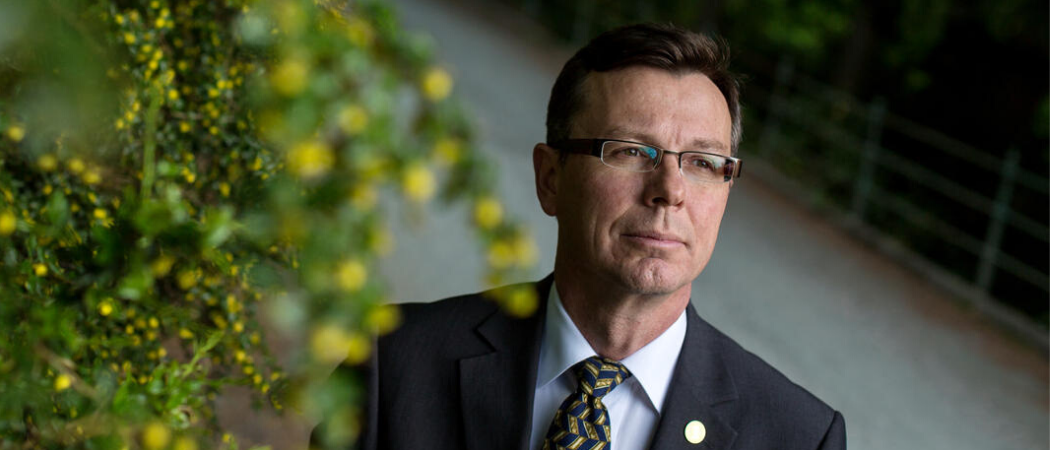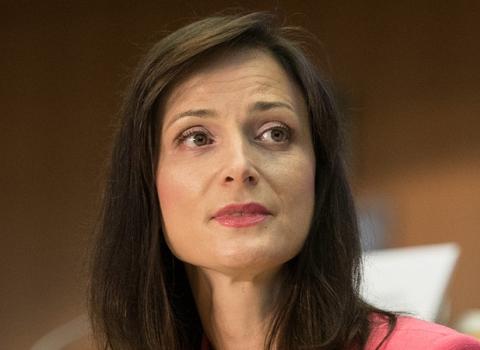Bergen University rector, Dag Rune Olsen, foresees a renewed fight in Brussels over the European Research Council budget. Short-termism is the most dangerous threat when we deal with crises, he says

Dag Rune Olsen, Rector, University of Bergen. (Photo credit: University of Bergen)
Bergen University rector, Dag Rune Olsen, says researchers need to gird themselves for a renewed battle in Brussels over basic research funding, after putting his signature to a petition calling for the €2 billion a year budget for the European Research Council (ERC), to be safeguarded.
“With everything that is happening, perhaps fundamental research isn’t high on everyone’s agenda right now. We launched the campaign to bring it back firmly to the table,” Olsen said.
EU officials are currently reworking their 2021-2027 budget and promising huge investment to cover the economic cost of COVID-19.
Olsen’s petition, ‘Friends of the ERC’, says there is now “significant reason to fear a cut across all areas” of the EU’s next big research programme, Horizon Europe. The programme was in line to get around €94 billion over the next seven years, but there are warnings that amount is out of reach, with pressure building on the EU to find money for post-coronavirus economic reconstruction.
“Obviously there’s the risk now, when the economy will definitely suffer, that politicians will urgently re-prioritise their spending. But short-termism is the most dangerous threat when we deal with crises,” Olsen said.
The campaign, which has drawn over 2,000 signatures of support, lists the ERC’s impact: over 100,000 articles published, with more than 5,500 papers in the top one per cent most cited international scientific journals. ERC projects have led to over 1,200 patent applications and more 100 new companies, the petition says.
The campaign was in the works before the huge rift that saw ERC president, Mauro Ferrari, dramatically leave his post two weeks ago, citing bitter disagreements over the agency’s research response to the pandemic.
Describing how events reached a point of no return, Ferrari says the ERC’s 19-member scientific council had “unanimously rejected the motion that we even meet to discuss” his proposal to create a hands-on funding initiative for COVID-19.
Olsen says he didn’t agree with Ferrari’s proposal to tilt the ERC’s focus to firefighting the crisis. “We don’t think the way to [get great research] is to set thematic areas for researchers. There are other instruments for tackling COVID-19 head-on. You might regard the pandemic as a unique situation for the ERC but it’s a slippery slope – you could always argue in the future that there are exceptions, and that the ERC needs to accommodate them,” he said.
Olsen, a cancer researcher by background, argues that unguided, long-term research is the reason we know so much about handling disease. “We wouldn’t understand immunity or be able to make tests or vaccines without fundamental research,” he said.
He’s adamant that the ERC should continue to let researchers do their thing, with no instructions on what the grant money should be spent on. “How do we meet the next challenge? It might be anti-microbial resistance. Should we not continue to invest many different areas over the next 10 years?”
He challenges officials in Brussels to learn from ‘the marshmallow test’, the series of famous experiments in the 1960s and ’70s conducted by the Stanford psychologist Walter Mischel. The research saw children invited to sit alone in a room with two marshmallows – they could choose to eat one immediately, or resist temptation, wait longer, and then eat both. “The test shows us that if you act with a short-term perspective, you miss future rewards,” Olsen said.
The rector recognises that academics share “a responsibility” to show that it’s worthwhile to wait. “If we can’t do that, we’ll have everyone jumping on the first marshmallow.”
COVID-19 changes
The University of Bergen hosts a few ERC grantees, and wants more. “We’re not best in class,” Olsen says, “but we hope to see grantees continue to come. They’re prestigious and a hallmark of high quality.”
Like everywhere else, the pandemic has upended life at the university, but Olsen remains positive about overcoming the challenge.
“We don’t think we’ll be able to re-open fully until next semester. But digital teaching will carry on, and grow to a much larger extent. There might even be opportunities to reach more students abroad now.
“We will see different ways of collaborating, that’s for sure, and I think we will probably see a boost in open science too,” he said.
One thing is already clear to Olsen. “The crisis has done more in one month to change our university than my seven years of rectorship,” he said.





 A unique international forum for public research organisations and companies to connect their external engagement with strategic interests around their R&D system.
A unique international forum for public research organisations and companies to connect their external engagement with strategic interests around their R&D system.